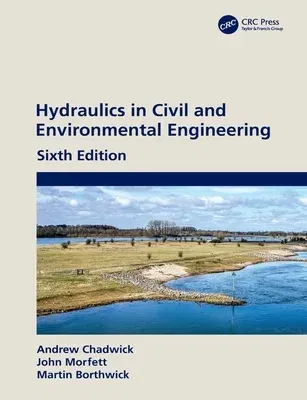This classic text, now in its sixth edition, combines a thorough
coverage of the basic principles of civil engineering hydraulics with a
wide-ranging treatment of practical, real-world applications. It now
includes a powerful online resource with worked solutions for chapter
problems and solution spreadsheets for more complex problems that may be
used as templates for similar issues.
Hydraulics in Civil and Environmental Engineering is structured into
two parts to deal with principles and more advanced topics. The first
part focuses on fundamentals, such as hydrostatics, hydrodynamics, pipe
and open channel flow, wave theory, physical modelling, hydrology and
sediment transport. The second part illustrates engineering applications
of these principles to pipeline system design, hydraulic structures,
river and coastal engineering, including up-to-date environmental
implications, as well as a chapter on computational modelling,
illustrating the application of computational simulation techniques to
modern design, in a variety of contexts.
New material and additional problems for solution have been added to the
chapters on hydrostatics, pipe flow and dimensional analysis. The
hydrology chapter has been revised to reflect updated UK flood
estimation methods, data and software. The recommendations regarding the
assessment of uncertainty, climate change predictions, impacts and
adaptation measures have been updated, as has the guidance on the
application of computational simulation techniques to river flood
modelling.
Andrew Chadwick is an honorary professor of coastal engineering and the
former associate director of the Marine Institute at the University of
Plymouth, UK.
John Morfett was the head of hydraulics research and taught at the
University of Brighton, UK.
Martin Borthwick is a consultant hydrologist, formerly a flood hydrology
advisor at the UK's Environment Agency, and previously an associate
professor at the University of Plymouth, UK.

